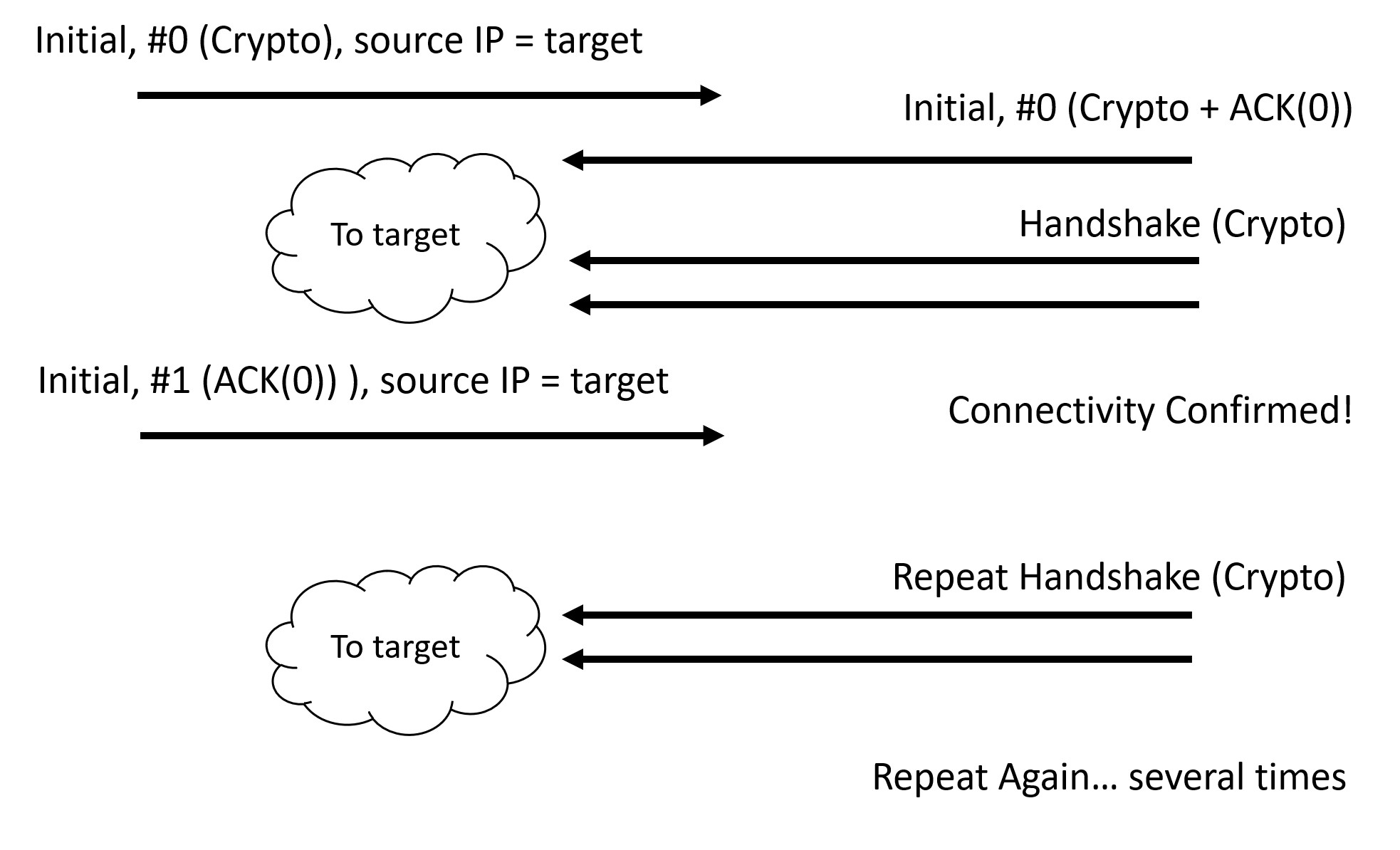

17 Jul 2022
Back in May, there was a discussion on the QUIC implementers’ chat room. What if a client played games with acknowledgements during the initial exchange? Could it be used in a DOS amplification attack? Or maybe some other form of DOS attack?
In the proposed attack the attacker sends a first packet, which typically contains the TLS 1.3 “Client Hello” and its extensions. The server will respond with up to three packets, the first one of which will be an Initial packet containing the TLS 1.3 “Server Hello” and its clear text extensions, followed by Handshake packets containing the reminder of the TLS server flight, or at least part of it. These packets will be sent to the “client address” as read from the incoming UDP message. The attacker has set that to the IP address of the target, not its own. It will not receive them, and it cannot guess the encryption key required to decrypt the handshake packets. But the attacker can guess that the packet number of the Initial packet was zero, because that’s the default. The attacker can thus create a second Initial packet, in which it acknowledges the packet number 0 from the server.

One risk is that the server accepts the incoming acknowledgement and treats the IP address of the client as “validated”. The DOS amplification protections would be lifted, and the server may start sending more packets towards the IP address of the client – or rather, towards the IP address of the target in our case. That would be bad.
It turns out that the picoquic implementation is protected against that attack: it will only validate the address if the incoming Initial packet carries the “connection ID” set by the server in its initial message. The only problem happens when the server uses zero-length connection-ID – a rare deployment, but one in which the fake packet would manage to validate the connection. That was a bug. It is now fixed. With that, the “fake acknowledgement” attack will not be able to use for amplifying DOS attacks.
That does not mean that the spoofed acknowledgement isn’t bad. It becomes just one of the many ways for third parties to spoof packets and interfere with the state of the connection. It is also an attack that is quite easy to fix. The attack depends on predicting the Initial packet number used by the server. It is easy to randomize that number. A recent code update just makes that the default behavior. As an added benefit, this means that acknowledgement of randomized packet numbers can be used to validate the client address, which improves the robustness of the connection establishment.